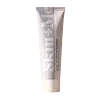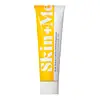What's inside
What's inside
 Key Ingredients
Key Ingredients

 Benefits
Benefits

 Concerns
Concerns

 Ingredients Side-by-side
Ingredients Side-by-side

Water
Skin ConditioningCaprylic/Capric Triglyceride
MaskingGlycerin
HumectantPolyacrylamide
Sodium Hyaluronate
HumectantCeramide NP
Skin ConditioningCeramide AP
Skin ConditioningCeramide EOP
Skin ConditioningAllantoin
Skin ConditioningBetaine
HumectantIsoamyl Laurate
EmollientSodium Polyacrylate
AbsorbentPhytosphingosine
Skin ConditioningCholesterol
EmollientSodium Lauroyl Lactylate
EmulsifyingCarbomer
Emulsion StabilisingXanthan Gum
EmulsifyingC13-14 Isoparaffin
EmollientBenzyl Alcohol
PerfumingPhenoxyethanol
PreservativeEthylhexylglycerin
Skin ConditioningDisodium EDTA
Isoamyl Cocoate
Laureth-7
EmulsifyingWater, Caprylic/Capric Triglyceride, Glycerin, Polyacrylamide, Sodium Hyaluronate, Ceramide NP, Ceramide AP, Ceramide EOP, Allantoin, Betaine, Isoamyl Laurate, Sodium Polyacrylate, Phytosphingosine, Cholesterol, Sodium Lauroyl Lactylate, Carbomer, Xanthan Gum, C13-14 Isoparaffin, Benzyl Alcohol, Phenoxyethanol, Ethylhexylglycerin, Disodium EDTA, Isoamyl Cocoate, Laureth-7
Water
Skin ConditioningDiisopropyl Sebacate
EmollientBis-Ethylhexyloxyphenol Methoxyphenyl Triazine
Skin ConditioningEthylhexyl Triazone
UV AbsorberButyl Methoxydibenzoylmethane
UV AbsorberEthylhexyl Salicylate
UV AbsorberDimethicone
EmollientGlyceryl Stearate
EmollientPEG-100 Stearate
Potassium Cetyl Phosphate
EmulsifyingNiacinamide
SmoothingTocopherol
AntioxidantPolyacrylamide
Phenoxyethanol
PreservativeBenzyl Alcohol
PerfumingEthylhexylglycerin
Skin ConditioningC13-14 Isoparaffin
EmollientDisodium EDTA
Laureth-8
EmulsifyingWater, Diisopropyl Sebacate, Bis-Ethylhexyloxyphenol Methoxyphenyl Triazine, Ethylhexyl Triazone, Butyl Methoxydibenzoylmethane, Ethylhexyl Salicylate, Dimethicone, Glyceryl Stearate, PEG-100 Stearate, Potassium Cetyl Phosphate, Niacinamide, Tocopherol, Polyacrylamide, Phenoxyethanol, Benzyl Alcohol, Ethylhexylglycerin, C13-14 Isoparaffin, Disodium EDTA, Laureth-8
Ingredients Explained
These ingredients are found in both products.
Ingredients higher up in an ingredient list are typically present in a larger amount.
Benzyl Alcohol is most commonly used as a preservative. It also has a subtle, sweet smell. Small amounts of Benzyl Alcohol is not irritating and safe to use in skincare products. Most Benzyl Alcohol is derived from fruits such as apricots.
Benzyl Alcohol has both antibacterial and antioxidant properties. These properties help lengthen the shelf life of products. Benzyl Alcohol is a solvent and helps dissolve other ingredients. It can also improve the texture and spreadability.
Alcohol comes in many different forms. Different types of alcohol will have different effects on skin. This ingredient is an astringent alcohol.
Using high concentrations of these alcohols are drying on the skin. They may strip away your skin's natural oils and even damage your skin barrier. Astringent alcohols may also irritate skin.
Other types of astringent alcohols include:
According to the National Rosacea Society based in the US, you should be mindful of products with these alcohols in the top half of ingredients.
Any type of sanitizing product will have high amounts of alcohol to help kill bacteria and viruses.
Learn more about Benzyl AlcoholThis ingredient is also known as "C13-14 Isoalkane".
C13-14 Isoparaffin is created from petroleum-based mineral oils. It is an emollient and helps thicken a product.
As an emollient, it helps keep the skin soft and smooth by creating a barrier on top. This barrier traps moisture in, keeping the skin hydrated.
C13-14 Isoparaffin may not be fungal-acne safe.
Learn more about C13-14 IsoparaffinDisodium EDTA plays a role in making products more stable by aiding other preservatives.
It is a chelating agent, meaning it neutralizes metal ions that may be found in a product.
Disodium EDTA is a salt of edetic acid and is found to be safe in cosmetic ingredients.
Learn more about Disodium EDTAEthylhexylglycerin (we can't pronounce this either) is commonly used as a preservative and skin softener. It is derived from glyceryl.
You might see Ethylhexylglycerin often paired with other preservatives such as phenoxyethanol. Ethylhexylglycerin has been found to increase the effectiveness of these other preservatives.
Phenoxyethanol is a preservative that has germicide, antimicrobial, and aromatic properties. Studies show that phenoxyethanol can prevent microbial growth. By itself, it has a scent that is similar to that of a rose.
It's often used in formulations along with Caprylyl Glycol to preserve the shelf life of products.
Polyacrylamide is a synthetic polymer. It is used to stabilize products and bind ingredients. When hydrated, Polyacrylamide forms a soft gel.
Polyacrylamide is low-toxicity. If source properly, it is deemed safe to use in cosmetics.
It should be noted the precursor to Polyacrylamide is acrylamide. Acrylamide is a carcinogen. Most reputable sources of Polyacrylamide will screen for residual acrylamide to make sure the count is in a safe range. Acrylamide is not able to be absorbed through the skin.
We recommend speaking with a professional if you have concerns.
Learn more about PolyacrylamideWater. It's the most common cosmetic ingredient of all. You'll usually see it at the top of ingredient lists, meaning that it makes up the largest part of the product.
So why is it so popular? Water most often acts as a solvent - this means that it helps dissolve other ingredients into the formulation.
You'll also recognize water as that liquid we all need to stay alive. If you see this, drink a glass of water. Stay hydrated!
Learn more about Water